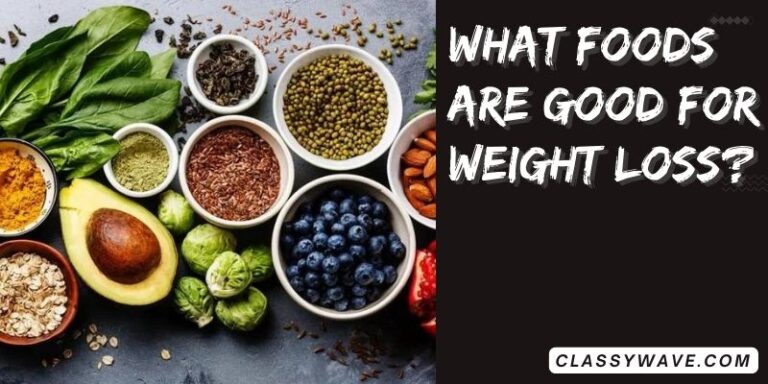Why Protein Helps with Weight Loss | Classy Wave
Ever wondered why fitness experts and nutritionists emphasize eating more protein when trying to lose weight? It’s not just a trend — protein genuinely plays a crucial role in helping your body shed fat, maintain muscle, and stay full longer. Understanding how protein affects your metabolism and appetite can make your weight loss journey much easier and more sustainable.
What Is Protein and Why It Matters
Protein is one of the three essential macronutrients, alongside carbohydrates and fats. It’s made up of amino acids, which are the building blocks your body uses to repair tissues, build muscle, and produce enzymes and hormones. When it comes to weight loss, protein stands out because of how it influences hunger, metabolism, and body composition.
Protein Boosts Metabolism and Increases Fat Burning
One of the biggest benefits of protein is its ability to boost your metabolism. Your body burns calories just to digest and process food — this is called the Thermic Effect of Food (TEF).
Protein has the highest TEF compared to carbs and fats, meaning your body burns more calories digesting protein than it does digesting other nutrients. Studies show that protein can increase your metabolic rate by up to 15–30%, while carbs only raise it by 5–10%. This means simply eating more protein can help you burn extra calories every day — even at rest.
Protein Keeps You Full for Longer
Ever notice how you feel hungry again shortly after eating a high-carb meal? That’s because carbs digest quickly, causing a spike (and then a drop) in blood sugar. Protein, on the other hand, digests more slowly and keeps you satisfied for hours.
High-protein meals reduce the hunger hormone ghrelin and increase levels of peptide YY, a hormone that makes you feel full. As a result, you naturally eat fewer calories throughout the day — without feeling deprived.
Protein Helps Preserve Muscle During Weight Loss
When you’re trying to lose weight, the goal is to burn fat, not muscle. Unfortunately, many low-calorie diets cause muscle loss, which can slow your metabolism and make it harder to keep the weight off.
Protein helps prevent this by providing your muscles with the amino acids they need to repair and grow. The more lean muscle mass you maintain, the more calories your body burns — even while resting. That’s why protein is often called the “metabolic multiplier.”
Protein Reduces Cravings and Late-Night Snacking
Cravings can easily derail your weight loss progress. Luckily, protein helps reduce them too. Studies have shown that eating more protein — especially at breakfast — can cut cravings by up to 60% and reduce late-night snacking by half.
A protein-rich breakfast like eggs, Greek yogurt, or a protein shake can keep you energized and satisfied throughout the day.
Protein Helps Regulate Blood Sugar Levels
Unlike refined carbs that cause blood sugar spikes, protein helps stabilize your energy levels. It slows down the absorption of sugar into the bloodstream, preventing sudden drops that trigger hunger and sugar cravings. This steady energy control makes it easier to stick to a balanced diet and avoid overeating.
How Much Protein Do You Need for Weight Loss?
The ideal protein intake depends on your body weight, activity level, and fitness goals. A general guideline is:
- 0.8 to 1 gram of protein per pound of body weight for active people trying to lose fat and preserve muscle.
- For example, if you weigh 150 pounds, aim for about 120–150 grams of protein daily.
Spread your protein intake evenly across meals — breakfast, lunch, dinner, and snacks — to maximize absorption and effectiveness.
Best Sources of Protein for Weight Loss
Focus on high-quality, nutrient-rich protein sources such as:
- Lean meats: Chicken breast, turkey, lean beef
- Fish: Salmon, tuna, sardines, cod
- Eggs: Whole eggs or egg whites
- Dairy: Greek yogurt, cottage cheese, low-fat milk
- Plant-based sources: Lentils, chickpeas, tofu, tempeh, quinoa
- Protein supplements: Whey, casein, or plant-based protein powders
These options not only provide protein but also contain vitamins, minerals, and healthy fats essential for a balanced diet.
Timing Your Protein Intake
Timing can make a big difference in how your body uses protein.
- Morning: Start your day with a protein-rich breakfast to reduce cravings.
- After workouts: Protein helps repair muscle and speeds up recovery.
- Before bed: A light protein snack like Greek yogurt can prevent overnight muscle breakdown.
Common Myths About Protein and Weight Loss
Myth 1: Eating too much protein makes you gain weight.
Fact: Protein doesn’t cause fat gain unless you consume excessive calories overall.
Myth 2: Only athletes need high protein.
Fact: Anyone looking to lose fat and stay lean can benefit from more protein.
Myth 3: Protein shakes are bad for you.
Fact: When used properly, protein shakes are a convenient way to meet your daily intake.
Balancing Protein with Other Nutrients
While protein is essential, don’t neglect carbs and healthy fats. Your body needs all three macronutrients for optimal performance. Combine protein with vegetables, whole grains, and good fats (like avocado or olive oil) to create balanced meals that support weight loss and long-term health.
Conclusion
Protein isn’t a magic pill for weight loss, but it’s definitely one of the most powerful tools you can use. It boosts metabolism, curbs hunger, reduces cravings, and helps preserve muscle — all while promoting steady fat loss. By including more high-quality protein in your diet, you’ll not only lose weight but also build a stronger, healthier body that lasts.







